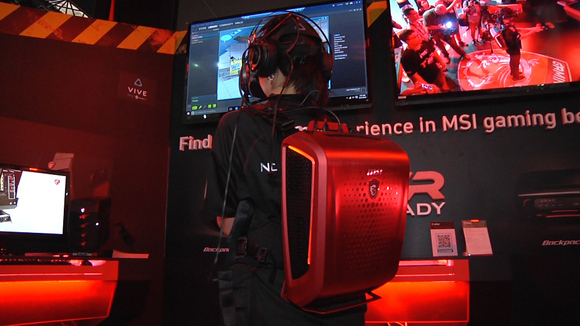Computex 2016: when push comes to shove, the PC is still pushing back
We have heard the rumors: the PC is supposed to be dead, but is it “staying” dead? Just like your average action hero, no matter how much rubble covers it, or how big the explosions, (or what kind of sales numbers we see year after year), here it comes, walking away from its doom, unscathed, and from what we have seen at Computex in Taipei, looking better than ever.

The PC has undergone a transformation, from its former nature, limited and stationary, until its “hatching”, of sorts, witnessed at the world’s premiere PC tradeshow, where the capabilities of the PC are no longer hidden behind the technical jargon that has filtered through the ears and eyes of consumers as garbled gibberish. The power of the PC is now visible in a variety of forms that consumers can experience, clearly, and see practical functionality, as opposed to stats, data and benchmarks reserved for those who make it a passion and commitment to the technology as a monument to itself.
VR is the word. Virtual Reality, has been one of the pivotal themes at Computex, with manufacturers like MSI showcasing powerful gaming PC’s that you can wear like a backpack, complete with virtual reality headset, powered by a GeForce GTX 980 GPU.
Asus has brought extreme simplicity to the way future desktop PCs will be built, with its Avalon concept PC that completely eliminates the need for cables, a feat that reminds us of the first Apple Mac Pro, although in Avalon’s case, the cabling is actually completely missing, while in Apple’s case, it was merely cleverly hidden.
Computex is also the place for PC extravaganza, and few companies are better than Corsair in showcasing how far creativity can go with a PC... in the shape of a cartoon shark.
One of the biggest and truest stars of the show, of course, was NVIDIA, with its variety of high-performance consumer GPUs, namely the GTX 1080 and GTX 1070, offering unseen performance, for a price that most dedicated gamers, and professional system builders can afford, as well as enabling manufacturers to construct PCs with amazing capabilities, and for once, enable them to truly stand behind their taglines of “blazing graphic performance”.
The bottomline is that PCs are not dead, they are transitioning to be what they always should have been, which is two things: sophisticated household appliances, and high-performance office equipment.
While the above definitions may be too subtle, when the chips are down, the subtlety might not even be enough, as one of the factors that has held back PC sales is the very definition of a PC, which has not changed in almost 40 years, and should have, several times.
This is not the kind of PC we have seen at Computex, for what we have seen is a PC that moves with the consumer, and is able to adapt and bring power and performance with it, in a form factor that is far more efficient and flexible than what consumers have seen in the past, while unconstrained by the requirements expected from a laptop or a tablet.